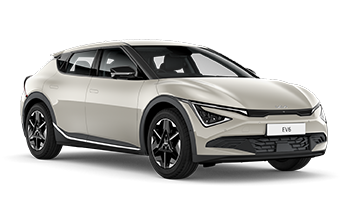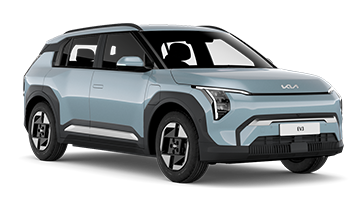Understanding the OZEV EV Charge point Grant: Everything You Need to Know

Understanding the OZEV EV Charge point Grant: Everything You Need to Know
With the growing number of electric vehicles (EVs) on UK roads, the need for accessible and affordable home charging solutions is more important than ever. To help drivers with the costs, the UK government, through the Office for Zero Emission Vehicles (OZEV), offers a financial incentive known as the EV Chargepoint Grant.
This guide will take you through the details of the OZEV Grant, how it works, who can benefit, and how to claim your share of up to £350 towards installing a home chargepoint.
We know electric vehicles can often seem complex, but rest assured, we're here to provide you with straightforward guidance to help you discover the perfect EV for your needs.
What is the OZEV EV Chargepoint Grant?
The OZEV EV Chargepoint Grant offers eligible applicants up to £350 towards the cost of purchasing and installing a home charging point for their electric vehicle. It’s a great way to make charging at home more accessible for people living in flats or rented properties with dedicated off-street parking.
The grant helps offset the costs for those who may not own their home but still want the convenience of home charging.
Who Can Apply for the OZEV Grant?
To qualify for the OZEV Grant, applicants must meet the following criteria: - Renters or flat owners: You must live in a rented home or own a flat to be eligible. - Dedicated parking: You need to have off-street parking allocated for your use. - Eligible vehicle: You must own, lease, or have use of an electric or plug-in hybrid vehicle that meets the OZEV requirements. - One chargepoint per household: Only one chargepoint can be claimed per household and vehicle, and you cannot claim a second chargepoint for a second EV. |  |
For more specific information on eligible vehicles, refer to the government’s list on the official OZEV website. | |
Which Vehicles Qualify for the OZEV Grant?
To qualify for the OZEV Grant, applicants must meet the following criteria:
- Renters or flat owners: You must live in a rented home or own a flat to be eligible.
- Dedicated parking: You need to have off-street parking allocated for your use.
- Eligible vehicle: You must own, lease, or have use of an electric or plug-in hybrid vehicle that meets the OZEV requirements.
- One chargepoint per household: Only one chargepoint can be claimed per household and vehicle, and you cannot claim a second chargepoint for a second EV.
For more specific information on eligible vehicles, refer to the government’s list on the official OZEV website.
How Do You Apply for the OZEV Grant?
The application process is designed to be simple:
- Renters: If you live in a rented property, you can apply by answering a few questions during the process of ordering your charging point. The installer will handle the paperwork and submit the claim on your behalf.
- Flat owners: If you own a flat, an assessment will determine whether your charger can be connected to your flat’s electrical supply or whether a communal meter is needed. In many cases, a property manager or landlord will need to be involved in the process to ensure compliance with communal setups.
In cases where a communal meter is used, property managers can also apply for the EV Infrastructure Grant for Residential Car Parks, which offers up to £500 per parking bay (up to 60 bays) to install EV charging points for residents.
Extra Support for Residents in ScotlandIn Scotland, additional grants are available to further reduce the cost of installing a home chargepoint. If you reside in Scotland, it’s worth looking into these opportunities as they could significantly lower your installation costs. |
|
Is the OZEV Grant Still Available?Yes, the OZEV Grant remains available for eligible individuals. Although the Electric Vehicle Home charge Scheme (EVHS) closed in March 2022, the current OZEV EV Chargepoint Grant continues with no known expiration date. This grant presents an excellent opportunity for homeowners, renters, and landlords to embrace electric vehicle technology and make home charging more affordable. | |
FAQ
No, the OZEV Grant is specifically available for people living in rented accommodations or flats with dedicated off-street parking. Homeowners living in houses are no longer eligible for the grant.
No, you can only claim the grant for one chargepoint per household and vehicle. The option to claim a second chargepoint for a second EV is no longer available.
Yes, your landlord or property manager can claim the EV Infrastructure Grant for Residential Car Parks, which offers up to £500 per parking bay (up to 60 bays) for the installation of charging infrastructure. This could help fund charging points for multiple tenants.
All fully electric vehicles qualify for the OZEV Grant. However, plug-in hybrid vehicles must have CO2 emissions below 50g/km to be eligible. You can find a full list of qualifying vehicles on the government’s OZEV website.
No, the OZEV Grant must be claimed before the installation of the charging point. If you’ve already installed your charger, you will not be able to apply retrospectively.
If your flat’s electrical supply cannot handle a home charger, it might be necessary to connect the charger to a communal supply. In this case, your property manager or landlord will need to get involved, and they can apply for the EV Infrastructure Grant to help cover the costs.
Taking advantage of the OZEV EV Chargepoint Grant can help reduce the costs of home EV charging, making it easier to embrace the future of electric driving. If you meet the eligibility requirements, now is the perfect time to apply and enjoy the benefits of charging at home.
Discover Our EV Range

Škoda Enyaq
Range: Up to 338 miles (544 km)
Charging: 10-80% in about 29 minutes with a 125 kW charger.

Škoda Enyaq Coupé
Range: Up to 317 miles (510 km)
Charging: 10-80% in around 38 minutes using a 125 kW charger.

CUPRA BORN
Range: Up to 340 miles (547 km)
Charging: 5-80% in about 35 minutes with a 125 kW charger.




Ford E-Transit
Range: Up to 126 miles (203 km)
Charging: 10-80% in about 34 minutes with a 115 kW DC fast charger.

Ford E-Transit Custom
Range:Up to 196 miles (315 km)
Charging: 10-80% in approximately 41 minutes.

Kia Niro EV
Range: Up to 285 miles (460 km)
Charging: 10-80% in about 43 minutes using a 100 kW fast charger.

Kia Soul EV
Range: Up to 280 miles (450 km)
Charging: 10-80% in around 45 minutes with a 100 kW charger.

Kia EV6
Range: Up to 328 miles (528 km)
Charging: Ultra-fast charging from 10-80% in just 18 minutes with a 350 kW charger.

Kia EV9
Range: Up to 336 miles (541 km)
Charging: 10-80% in about 20 minutes with a 350 kW charger.

Kia EV3
Range: Up to 336 miles (541 km)
Charging: 10-80% in about 20 minutes with a 350 kW charger.

BYD ATTO 3
Range: Up to 261 miles (420 km)
Charging: 30-80% in around 29 minutes with DC fast charging.

BYD DOLPHIN
Range: Up to 260 miles (418 km)
Charging: 30-80% in around 29 minutes with DC fast charging.




